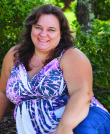Behavioral Health
Virginia Health Care Foundation
Behavioral Health Initiatives
Virginia is in the midst of a mental health crisis due to the effects of the COVID-19 pandemic and a variety of societal stressors. Demand for mental health services has skyrocketed and there is insufficient capacity to meet the demand.
National and local data underscore the need. Virginia ranks 39th in the country in access to mental health care and 48th in availability of mental health access for children & youth. Every locality in Virginia is now a federally designated mental health professional shortage area. In addition, the race and ethnicity of Virginia’s licensed behavioral health professionals is disproportionate to the population with significant shortages of those who are people of color or are fluently bilingual. Community health needs assessments conducted by hospitals throughout the state consistently rank inadequate access to mental health services as the top unmet need.
There are two main barriers to the availability of mental health services – the shortage of licensed behavioral health professionals and too few sites where people can get the care they need. The Virginia Health Care Foundation (VHCF) has devoted significant attention and resources to increasing the availability of both.
VHCF’s initiatives focused on increasing the number of licensed behavioral health professionals include:
A Psychiatric Nurse Practitioner Scholarship Program established in 2017. (65 scholarships awarded with more than half to people of color)
Boost 200, a state-funded pilot program to produce 100 more Licensed Clinical Social Workers and 100 more Licensed Professional Counselors by paying for the supervision of clinical hours required for licensure. (75% of enrollees are people of color and 48% are first generation graduates)
Grants for community organizations and health safety net practices to hire and to pre-licensees preparing for licensure as LCSWs, LPCs, or Licensed Marriage & Family Therapists. In return for those practices providing licensure-required supervision.
An Assessment of the Capacity of Virginia‘s Licensed Behavioral Health Workforce. The alarming results have stimulated a variety of state and private sector actions and initiatives, including Boost 200.
VHCF’s initiatives to increase the number of sites providing mental health services include:
Nurture Now: Helping Kids Shine helps establish or expand school-based health centers that provide basic mental health services in partnership with a local school where a significant number of students are eligible for the federal free & reduced meal program or are income eligible for Virginia’s Medicaid or FAMIS health insurance coverage (205% FPL).
Health Access Grants to establish or expand the delivery of mental health services in a nonprofit organization by paying the salary and benefits of adding a licensed behavioral health professional.
VHCF’s initiatives to create awareness of behavioral health challenges, initiatives and champions
VHCF also provides education, training, and networking opportunities to behavioral health professionals and interested stakeholders via its semi-annual Mental Health Roundtables and its Behavioral Health Hub, which reaches more than 1000 people each week.
In addition, VHCF has also produced op-eds regarding the Commonwealth‘s behavioral health needs and actions by the General Assembly and state policymakers to address those needs. In 2022 VHCF established a special set of awards to highlight the work of Virginia Mental Health Champions.
As a public/private partnership, VHCF has worked hand-in-hand with the state and the Foundation’s many private sector partners to identify and address a range of gaps in and barriers to the availability of primary health care, including behavioral health, during the 32 years it has been an operation.
For more information, contact Deborah Oswalt, VHCF’s Executive Director (doswalt@vhcf.org)
Last Updated on January 16, 2024

